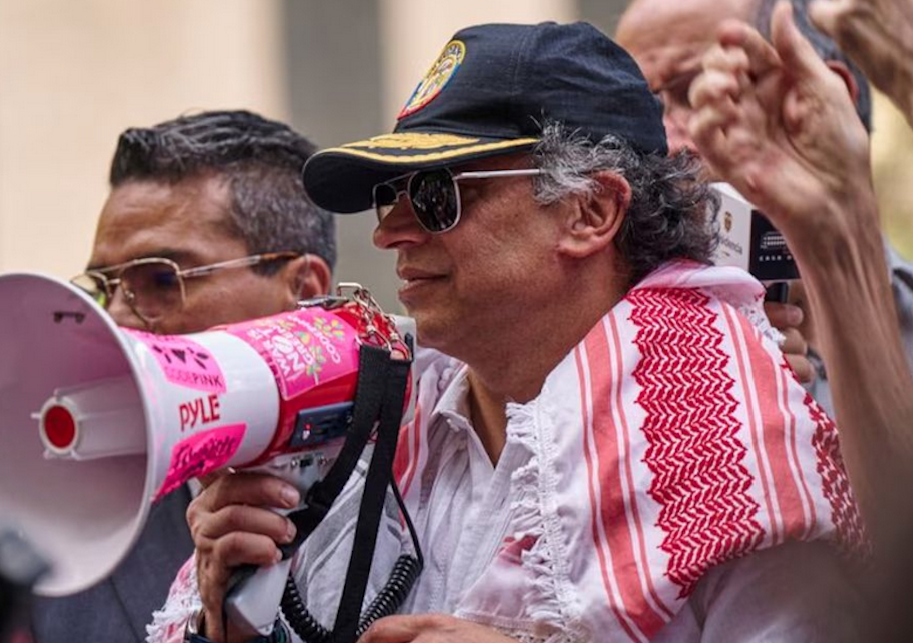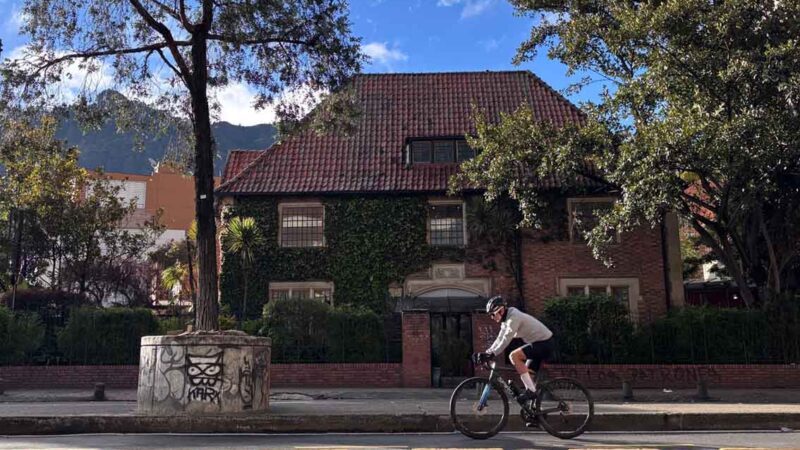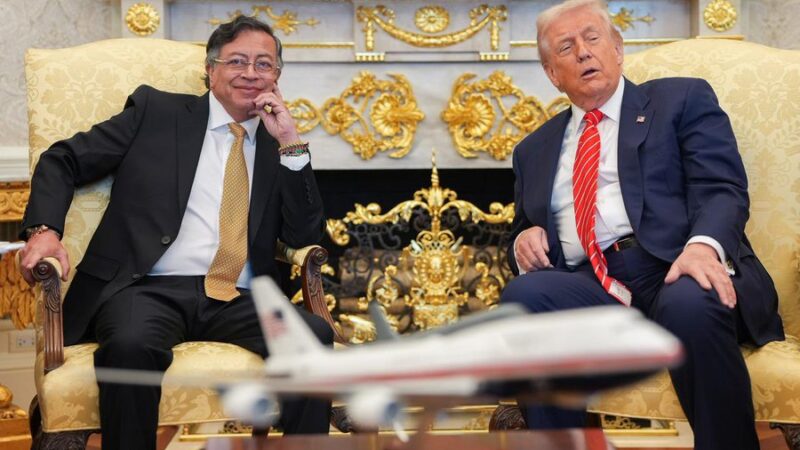
Colombia’s diplomatic rift with Washington continues to widen after the U.S. Department of State revoked President Gustavo Petro’s visa last week, triggering a wave of defiant responses from ministers that now leaves many within the cabinet unable – or unwilling – to enter the United States.
The rupture began on Friday in New York, when Petro, fresh from addressing the United Nations General Assembly, joined a pro-Palestinian rally near Times Square. Draped in a kaffiyeh and speaking through a megaphone, the Colombian leader called on U.S. soldiers to “disobey” President Donald Trump and refuse to “point their rifles against humanity.” He further pledged to open enlistment for Colombians to fight in Gaza and urged nations to build an army “larger than that of the United States.”
Within hours, the State Department announced Petro’s visa would be canceled “due to his reckless and incendiary actions.” Petro, back in Colombia, dismissed the measure as irrelevant, claiming on X that he “doesn’t care” as he holds Italian citizenship and “can enter the U.S. without a visa.”
The fallout quickly engulfed his cabinet. Foreign Minister Rosa Villavicencio announced on Monday, from Palacio San Carlos, that she had “renounced” her visa, declaring that Colombia “is not interested in diplomatic visas that limit opinions or curtail sovereignty.”
Finance Minister Germán Ávila wrote on X that he would also give up his visa in solidarity. “To work for our people, we do not need visas,” Ávila posted. “We will not bow before aggression.”
Energy Minister Edwin Palma confirmed that his U.S. visa had been revoked and responded with the terse message: “Gaza well deserves a visa.”
Angie Rodríguez, director of the presidential office (DAPRE), and one of Petro’s close aides, said her visa had also been canceled, adding her name to the growing list of officials now barred from U.S. entry. “Your words at the UN, President, were truth, dignity and courage,” Rodríguez told Petro in a cabinet meeting Monday. “You are today a world-class leader. History will place you where you belong.”
In the same session, all ministers signed a statement backing Petro’s remarks in New York. “Without hesitation, you denounced complicity in genocide in Gaza and the failure of the war on drugs,” the letter read. “Your call shook the inertia of those who govern the world.” Ministers closed ranks in defiance, presenting the revocations as proof of Colombia’s “sovereignty” rather than a diplomatic crisis.
Yet the decisions cast a shadow over Colombia’s ability to manage crucial international business. The absence of a finance minister able to meet directly with U.S. officials or Wall Street investors jeopardizes debt negotiations and access to multilateral lenders. Trade talks and investment roadshows in the U.S. are now effectively off-limits to Petro and company.
The confrontation also dovetails with Petro’s rupture with Israel. On Monday, state-owned weapons manufacturer Indumil announced it had produced the first rifles to replace Israeli-made Galils, which for decades had armed Colombia’s military. Indumil manager Javier Carmago said the goal is to produce 400,000 new rifles within five years. “We will gradually replace current weapons in the armed forces,” he stated. The new arms, made of steel and polymer, are 15 to 25 percent lighter and cheaper to produce.
Petro severed diplomatic ties with Israel in 2024, accusing it of “genocide” in Gaza and comparing its military campaign to the Holocaust. He has supported South Africa’s case at the International Court of Justice (ICJ) and has repeatedly posed with maps of a Palestinian state replacing Israel. At the New York rally, he went further, declaring: “If I need to go and join to serve [in Gaza], I will.”
The Trump administration has taken an increasingly hard line, placing Colombia on a list of countries failing to meet commitments in the fight against drug trafficking and now moving against Petro’s inner circle. For Colombia, the timing could not be worse: weak economic growth, rising fiscal debt, and a deep security crisis that continues to give illegal armed groups control over large areas of the country.
By manipulating the recent U.S. decisions into a test of personal loyalties, Petro has tied his cabinet’s fate to his own international disgrace. What began as the revocation of one visa has spiraled into a situation where Colombia’s Foreign Minister, Finance Minister, Energy Minister, and senior aide cannot travel to the U.S.
Whether these renunciations were presented as “voluntary” or are preemptive, the result is the same: Colombia’s access to Washington D.C. – seat of multilateral organizations including the Inter-American Development Bank, International Monetary Fund (IMF), and World Bank – has been diminished at a moment of acute national vulnerability, with the country exposed to international scrutiny and deprived of direct access to the United States’ markets and most influencial decision makers.
Share this story
Richard Emblin
Richard Emblin is the director of The City Paper.








